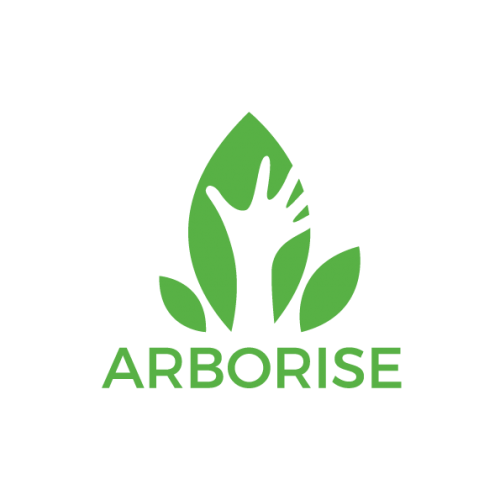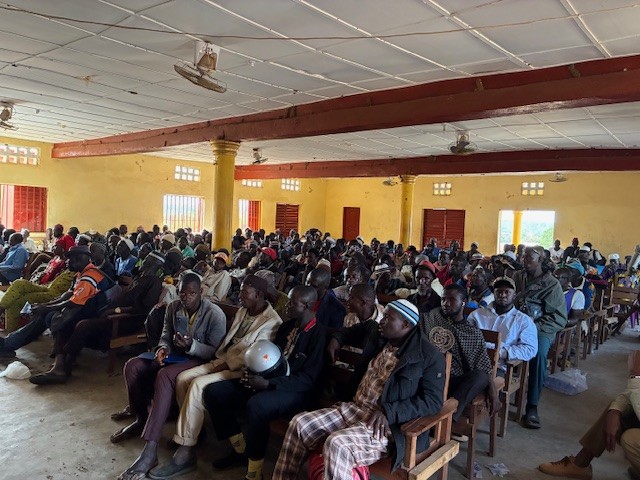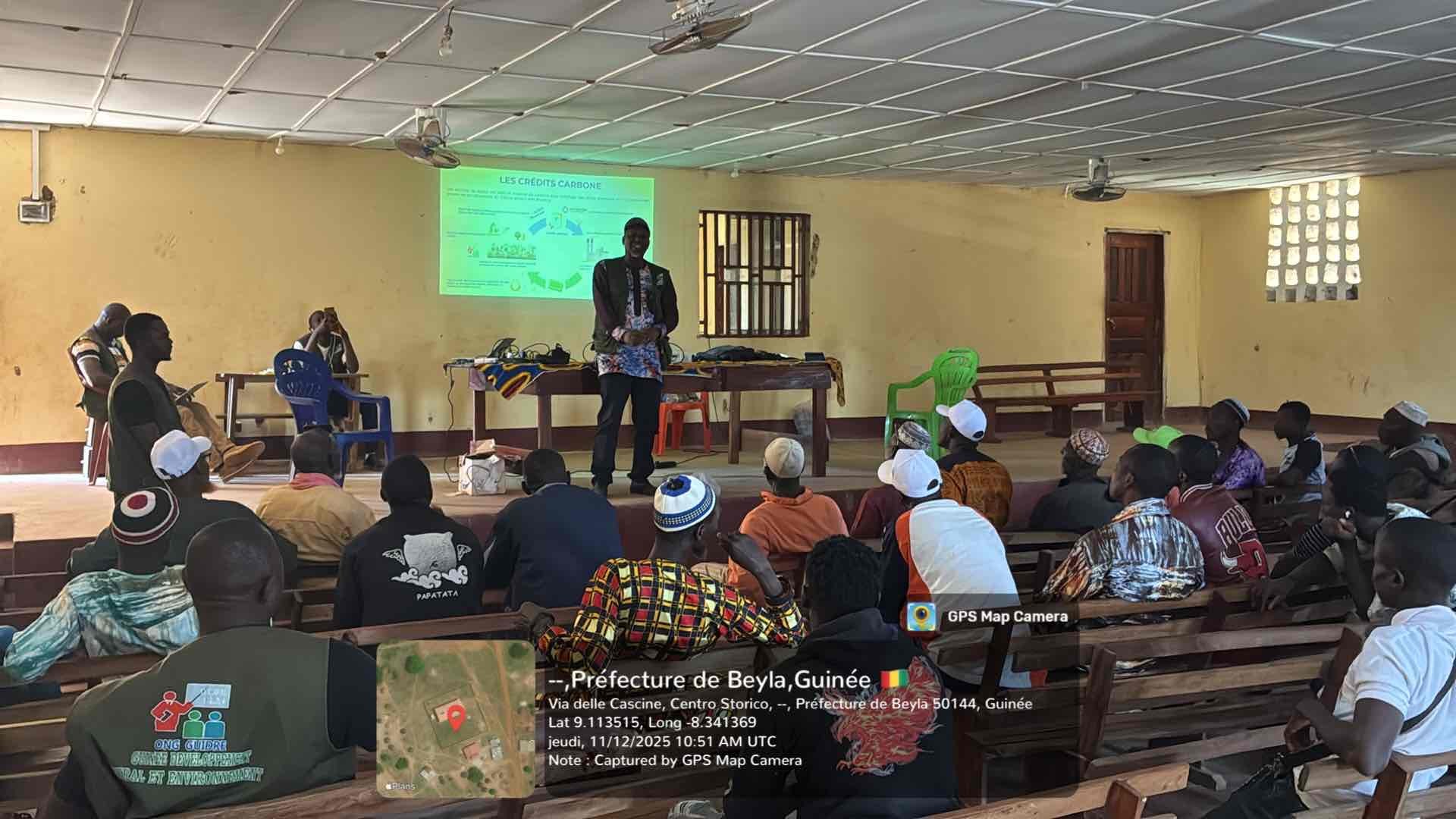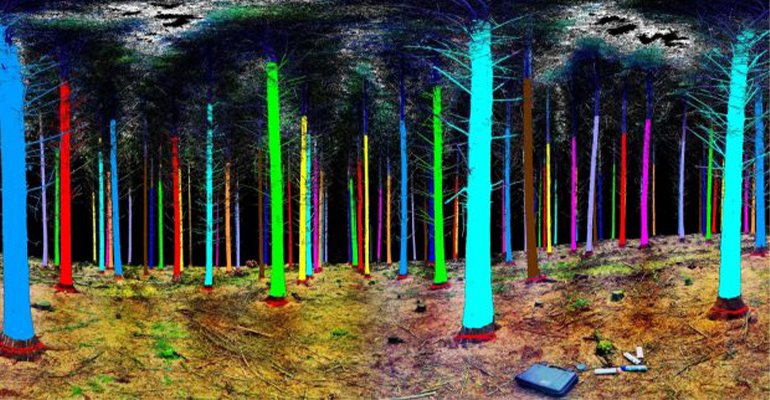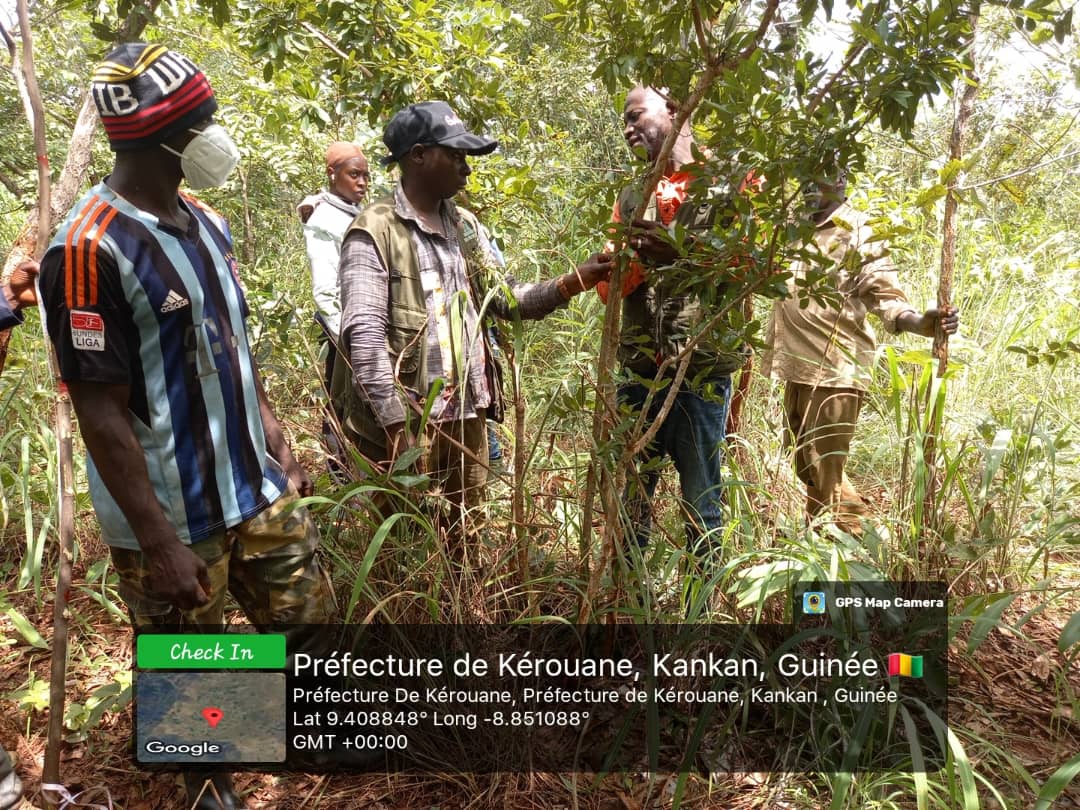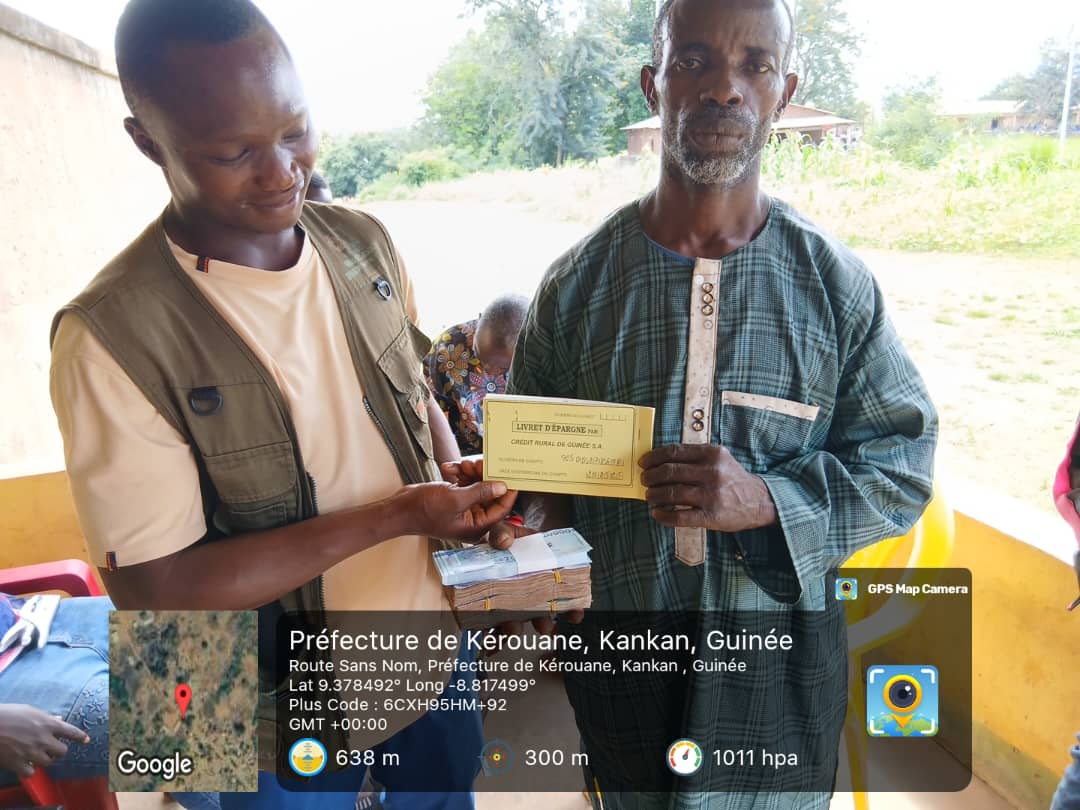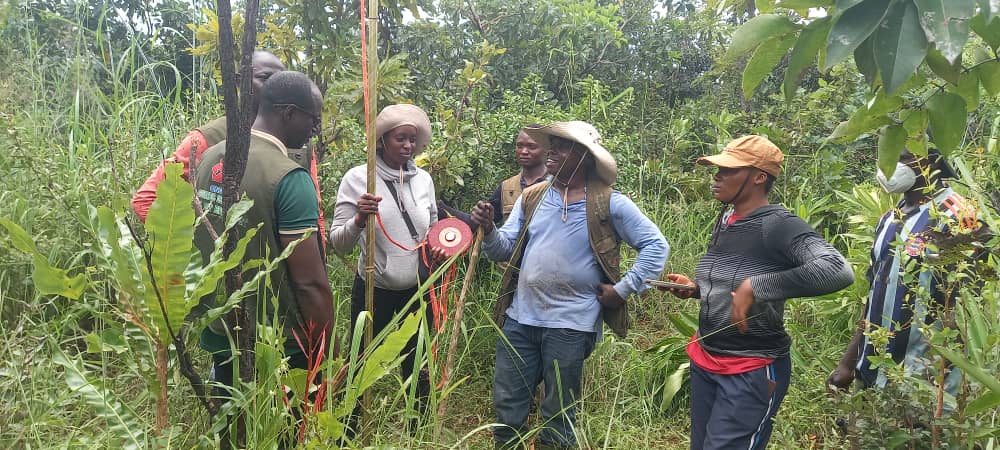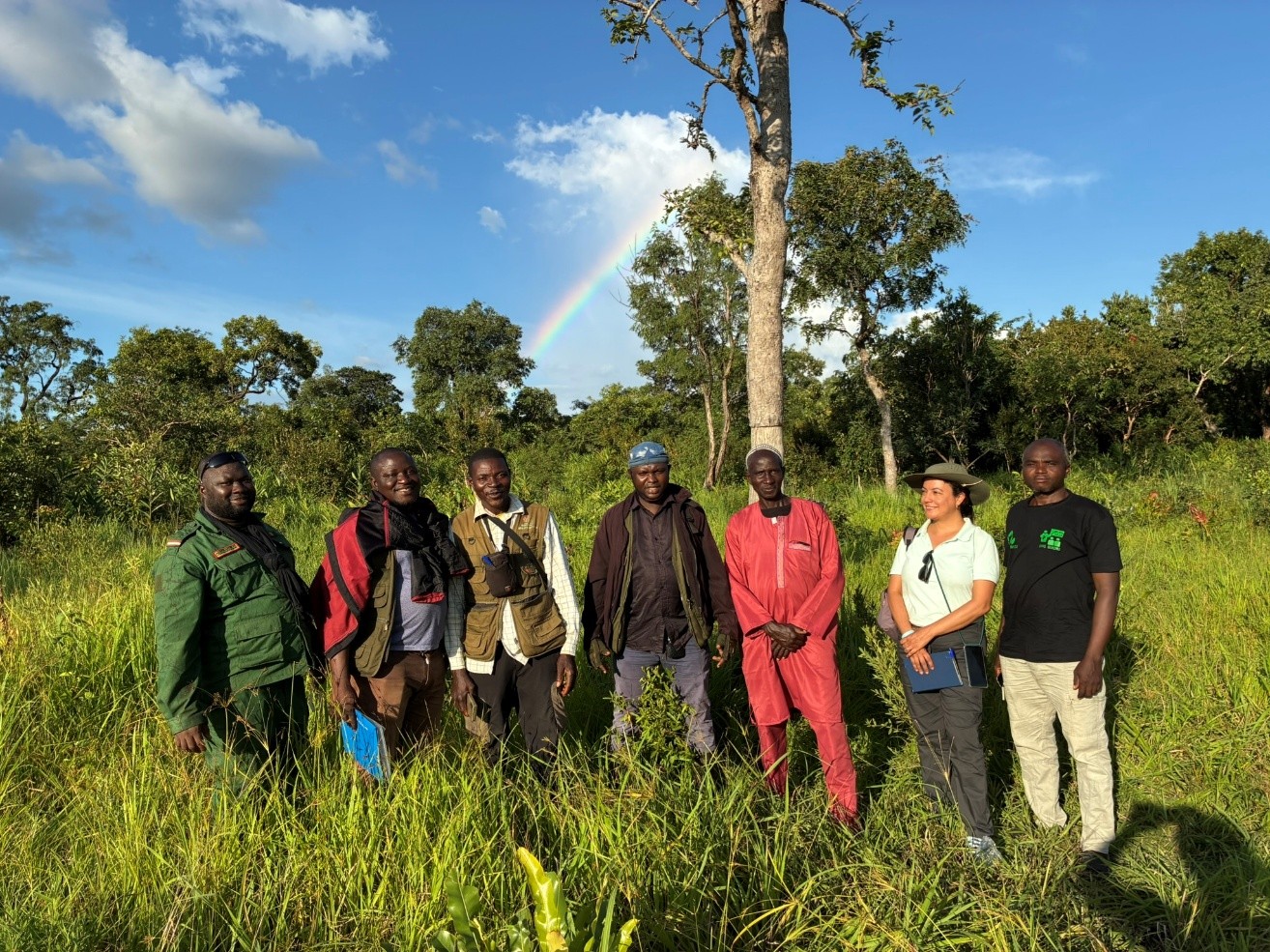arboRise is a particularly active community and our members can be proud of it!
Not a member of the community yet? Interested in joining?
A historic day in the sub-prefecture of Samana on 13 December 2025: Samana’s first cooperative, bringing together the 248 farming families of Samana, was founded in the presence of local authorities. The 248 cooperative members were invited to gather at the Youth Centre in the commune’s capital. Such an event is exceptional in the region: most of the participants were very surprised to receive two good meals during the day as well as a daily allowance. The Samana authorities were invited and the sub-prefect of Samana gave a very inspiring speech, which we recorded and broadcast on local radio. The main theme of the day was to explain ‘why create this cooperative’ (to better manage the reforested plots that are the common property of all families) and to prepare for the elections of the cooperative’s governing bodies at the next general meeting in March 2026. The Samana Cooperative is already
CGC trainings follow the “train the trainer” approach. To provide immediate support to seed families and field families in each village, the project sets up a Community Management Committee. This committee is made up of 10 to 20 prominent members of the village, who are often already responsible for specific issues (women’s groups, youth, health and hygiene, etc.). In our project, the CGCs are responsible for Supporting seed families and field families. The CMC coordinates collective activities (seed collection, sowing, etc.) and organizes peer learning activities. Identifying best practices. The CGC identifies the plots of land in its village where trees have grown best and seeks to understand why, in order to recognize best practices. Disseminating best practices within the village and between villages. The CGC passes on good ideas from seed families to other seed families in the village and does the same for field families. The CGC shares good
As we have seen, manually measuring trees for verification purposes is very time-consuming. Furthermore, biomass is estimated using an allometric equation that only takes into account diameter and height. About allometric equations: Chave et al, 2005: Tree allometry and improved estimation of carbon stocks and balance in tropical forests Djomo et al, 2010 : Allometric equations for biomass estimations in Cameroon and pan moist tropical equations including biomass data from Africa Chave et al, 2014 : Improved allometric models to estimate the aboveground biomass of tropical trees What about biomass in branches? Is it sufficiently taken into account by equations, which are often not based on forest measurements, regardless of species? Other dendrometric measurement methods exist, which generally use scanners (TLS: terrestrial laser scanner). Numerous studies show that the accuracy of the measurement and the time required are similar to manual measurements, but this equipment is very expensive (CHF 60,000). Since 2021,
With project validation almost complete, we can now begin the project tree measurement as main part of the initial verification process. As you may recall, we established a representative sample of 116 monitoring plots from among the 840 plots reforested between 2021 and 2024. Now we must measure all the trees present on the 116 plots covering 625 m², or 72,500 m² in total. This operation requires several steps: Update the standard operating procedure and train GUIDRE via videoconference For each of the 116 plots, the GUIDRE measurement teams must find the plot in the given village refresh the yellow paint in the centre of the plot mark the 625 m² perimeter of the circular plot with barrier tape identify each tree over 2 metres tall, mark it with a piece of coloured string so as not to measure it twice, measure its diameter at breast height and identify the
All 290 field-families in Linko received their “carbon revenues” for the first time, according to the distribution key proposed by the cooperative committee and approved by the Cooperative’s General Assembly. It should be noted that this is virtual carbon income, as the project has not yet generated any carbon credits. The amount distributed to beneficiaries is drawn from the project’s pre-financing. To ensure secure payment, the project offered each of the 290 members of the Linko CR Land Family Cooperative the opportunity to open a bank account with Crédit Rural de Guinée. The project financed the administrative costs of opening these accounts through the CRG’s Kérouané branch. The payment process went smoothly despite some technical difficulties encountered by Crédit Rural de Guinée (delayed payment from the Central Bank to CRG and IT problems related to the software used to distribute funds to individual accounts). The Crédit Rural de
After demarcating and seeding plots 2025 during the first half of the year, we need to measure the baseline on a sample, which is done during the second half of the year. This requires several steps: South Pole calculates the sample size and randomly identifies GPS coordinates We update the standard operating procedure and train GUIDRE For each of the 45 plots, GUIDRE’s measurement teams must find the plot in the given village install a metal pole in the middle of the plot and secure it with stones mark this centre with yellow paint mark the perimeter of the 625 m² circular plot with marking tape identify all existing trees, mark them with a nail (so they can be found during future measurements), measure their diameter at breast height and their height, and identify the species of each tree send the data via the kobo-collect form The aim of this
The validation audit in Samana took place from 27 July to 4 August, without any logistical problems and avoiding the increasingly frequent rain showers during this period. It had to be postponed from mid-June to the end of July due to Schneider Electric’s acquisition of EcoAct: Verra had requested changes to the project documents before opening the public consultation period prior to any audit (here are the documents: https://registry.verra.org/app/projectDetail/VCS/4870) The mission involved 14 people: The two auditors from Earthood and their interpreter The two consultants from our partner EcoAct The Executive Director of GUIDRE and his right-hand man The director of arboRise Two drivers The GUIDRE field team consisting of four supervisors and one forester Nepolion and Manish, the two auditors from Earthood, visited 15 randomly selected plots in seven villages and interviewed more than 30 people: plot families, seed families, village chief, CGC, president of women’s groups, youth representatives,
